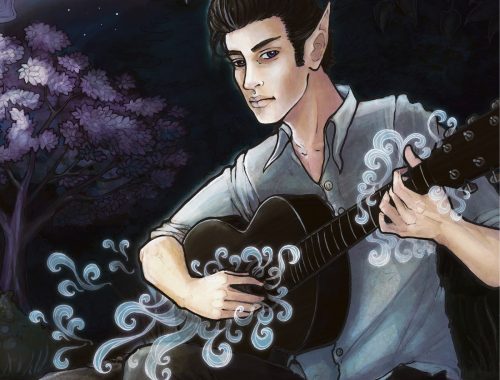And oh yeah, one other thing I wanted to post about today: my current levels of frustration with badly formatted ebooks.
I’ve been hearing a lot of good things about author Aliette de Bodard, and so I snapped up her Obsidian and Blood books from Angry Robot. The entire prospect of a trilogy set in the ancient Aztec Empire, combining elements of both fantasy and a murder mystery, struck me as too damned tempting to pass up. ‘Cause I mean seriously, how often do you get to string “Aztec-mythos fantasy murder mystery” into the description of a book?
Problem is, as I discovered when I delved into book 1, the ebook is very badly laid out. By which I mean, paragraphs that are barely indented, making it almost impossible to tell where one ends and the next begins–and in some cases, paragraphs that are split partway through. When I dug into the ebook to see what the hell was going on in there, I found that all the paragraphs were laid out as <div> blocks rather than <p>, and that what indentation there was was being done via two non-breaking spaces. Which was not done consistently, either. Every so often there would be none, and every so often three.
Which was a damn shame, because the book is quite good, or at least that’s been my impression on my attempt to slog through the initial chapters and follow the action. The layout though was frustrating enough to me that I went through the whole damn thing in Calibre and fixed the formatting, just so I could read it. I’m going to start over from the beginning now, with paragraph indents I can actually see, and give the story the attention it deserves.
This isn’t the first time I’ve had to do this, either. One of Kat Richardson’s Greywalker books (about which I have enthused quite a bit in the past) had the deeply baffling problem of every single Q throughout the book being capitalized. ALL of them. At the beginnings of words and in the middle as well. This was hugely distracting.
Likewise the ebook copy I tried to buy of The Green Glass Sea–wherein the whole damn thing was italicized, because somebody forgot to close a tag at the front of the book. And then there was the superlatively crappy OCR job somebody did on Elizabeth Peters’ The Falcon at the Portal, wherein the accented characters in the occasional German word in the dialogue were broken. And even worse, the character Selim kept being called “Scum” in the text, because whatever they used to do the OCR conversion choked on his name.
My overall point here being: c’mon, publishers, do better.
I’ve got the technical chops to be able to get into a book and clean it up, so that I can fix a broken digital reading experience. Since I’m a QA Engineer in my day job, I understand HTML and CSS, and I know what to do to fix problems with them. But I shouldn’t have to. When I buy a book, I’m putting down my money for the expectation that I will be delivered a story that’ll entertain me for the span of time it takes me to read it. I should not have to crack open that file and spend several extra hours on top of the actual reading time, cleaning it up so that I can actually get back to what I paid for in the first place: i.e., the story.
AND: not everybody has the same skills I do. A non-techie reader has no recourse in scenarios like this but to either a) slog through a poor reading experience in the hopes that the story will outweigh the broken formatting, or b) return a clearly broken ebook and go buy print instead, if they really want to read that book. Which, okay, yeah, it’s another sale and that’s all good for the author and all–but it’s potentially still very inconvenient to the reader, depending on their book budget and whether they have any issues at all reading in print, e.g., vision problems or what have you.
Moreover, speaking as a small-fry digital and indie author, it’s deeply frustrating to me to see so much brouhaha over how self-pubbed authors are so often putting up badly formatted, unprofessional material–yet to turn around and see the big publishers still sometimes doing the same damned thing.
I beg you, publishers, take the time to quality-check your digital productions. Load them up on different devices to make sure they are actually readable. Hire people who know HTML and CSS and who can fix problems that arise.
And, fellow indie authors, the same goes for you. If you’re going the indie route, and you’re going to publish digitally, review your layout. If you don’t have the technical chops to fix problems, recruit friends who do. Ask your social circle who has what ereaders and who can sanity check your book for you on them. Yes, it’s annoying. Yes, it’s time-consuming. But it’s part and parcel of producing a book that makes you look like you know what you’re doing, and an indie author has to work even harder than a traditionally published one to hit that goal. So do that work.
Your readers, technically inclined or otherwise, will thank you.

